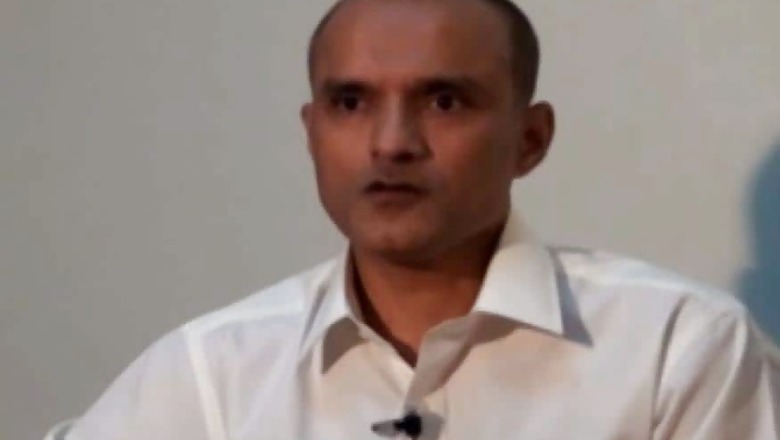
views
New Delhi: The oral proceedings in the Kulbhushan Jadhav case will commence from February 18 before the International Court of Justice at The Hague, the Ministry of External Affairs said Thursday.
The International Court of Justice (ICJ) will hold public hearings in the Kulbhushan Jadhav case from Monday at The Hague during which India and Pakistan will present their arguments before the top UN court.
The ICJ has set a timetable for the public hearing in the case from Febraury 18 to 21 in The Hague and Harish Salve, who represents India in the case, is expected to argue first on February 18. The English Queen's Counsel Khawar Qureshi will make submissions on February 19 from Islamabad's side. Then India will reply on February 20 while Islamabad will make its closing submissions on February 21.
The hearings will be streamed live on the Court's website as well as on UN Web TV, the United Nations online television channel.
It is expected that the ICJ's decision may be delivered by the summer of 2019.
Jadhav, 48, was sentenced to death by a Pakistani military court on charges of espionage and terrorism in April 2017. India moved the International Court of Justice (ICJ) in May the same year against the verdict.
A 10-member bench of the ICJ on May 18, 2017, had restrained Pakistan from executing Jadhav till adjudication of the case.
Ahead of the hearing, a senior Pakistani official said that his country is committed to implementing the decision of the ICJ in the Jadhav case. "We are fully prepared with our strongest evidence being the valid Indian passport recovered from Commander Jadhav with a Muslim name," the official said
Pakistan security forces arrested Jadhav from restive Balochistan province on March 3, 2016 after he reportedly entered from Iran.
In its written pleadings, India has accused Pakistan of violating the Vienna Convention by not giving consular access to Jadhav arguing that the convention did not say that such access would not be available to an individual arrested on espionage charges.
In response, Pakistan through its counter-memorial told the ICJ that the Vienna Convention on Consular Relations 1963 applied only to legitimate visitors and did not cover clandestine operations.
Pakistan had said that "since India did not deny that Jadhav was travelling on a passport with an assumed Muslim name, they have no case to plead."
Pakistan also said that India did not explain how "a serving naval commander" was travelling under an assumed name. It also stated that "since Jadhav was on active duty, it is obvious that he was a spy sent on a special mission".
However, India maintains that Jadhav was kidnapped from Iran where he had business interests after retiring from the Navy.
Jadhav's sentencing had evoked a sharp reaction in India.
India had approached the ICJ for "egregious" violation of the provisions of the Vienna Convention on Consular Relations, 1963, by Pakistan in Jadhav's case.



















Comments
0 comment